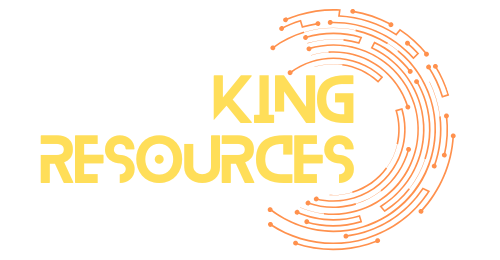Imagine sipping coffee on your sun-drenched porch, the smell of saltwater wafting through the air as you gaze out at your very own slice of paradise. A second home isn’t just a dream; it’s a smart investment that can turn into a financial fortress. Whether it’s a cozy cabin in the mountains or a chic condo by the beach, owning a second property can provide a sanctuary for relaxation and adventure.
Table of Contents
ToggleBenefits Of A Second Home Purchase
Owning a second home offers numerous advantages. These benefits create opportunities for both financial growth and personal enjoyment.
Investment Opportunity
A second home functions as a solid investment. Properties in desirable locations often appreciate over time. Investors enjoy rental income when they rent out their properties during peak seasons. According to the National Association of Realtors, 29% of all home purchases in 2021 were made for investment purposes. Tax benefits frequently apply to second homes, including deductions on mortgage interest and property taxes. Equity builds over time, allowing owners to leverage that wealth for future investments. With proper management, a second home can provide significant financial returns.
Personal Enjoyment
Second homes provide an escape from daily routines. Whether it’s a beach house or a mountain cabin, these properties offer relaxation and recreational activities. Family and friends can gather for memorable vacations, strengthening bonds. Availability of a personal getaway reduces the stress of planning trips. Individuals enjoy customization options, tailoring their homes to fit personal tastes. Regular visits to a second home can enhance overall well-being and quality of life. Frequent exposure to new environments fosters creativity and rejuvenation.
Financing Options For A Second Home Purchase

When considering a second home purchase, understanding financing options is crucial. Multiple avenues exist for funding this significant investment.
Traditional Mortgages
Traditional mortgages remain a popular choice for financing secondary properties. Most lenders offer these loans, often requiring a down payment between 10% and 20% of the home’s purchase price. Borrowers typically experience competitive interest rates, depending on their credit score and financial standing. An essential consideration involves understanding that lenders may impose stricter requirements for second home mortgages compared to primary residences. The loan eligibility often reflects the borrower’s ability to manage both mortgage payments concurrently. Owning a second home with a traditional mortgage generally allows for potential tax deductions on mortgage interest and property taxes.
Alternative Financing Solutions
Alternative financing solutions provide flexibility for second home buyers. These options include home equity loans, lines of credit, or even private financing through individuals. Home equity loans leverage existing property equity and usually offer lower interest rates. Buyers might explore personal loans as a quick, unsecured financing method, albeit at higher interest rates. Furthermore, some buyers consider seller financing, allowing purchase terms to be negotiated directly with the current owner. Each alternative presents distinct advantages and challenges, aligning with individual financial situations and goals. Evaluating all options thoroughly helps prospective buyers make sound financial decisions when acquiring a second home.
Choosing The Right Location
Selecting the right location for a second home is crucial. A well-chosen site enhances enjoyment and investment potential.
Popular Destinations
Beach towns, mountain resorts, and urban areas represent popular destinations for second homes. Coastal regions like Florida and California attract those who crave sunshine and ocean views. The mountains in Colorado and Vermont allure outdoor enthusiasts seeking recreational opportunities. Cities such as Nashville and Austin draw buyers interested in vibrant culture and entertainment. Each destination offers unique experiences, ensuring that personal preferences guide the choice.
Factors To Consider
Several factors influence location selection. Significantly, accessibility to major highways or airports affects how easily one can reach the second home. Weather conditions throughout the year play a vital role, as certain climates suit specific activities. Local amenities such as grocery stores, restaurants, and recreational facilities enhance convenience. Finally, property values in the area matter, ensuring long-term investment potential remains strong. Evaluating these factors can lead to a satisfying and rewarding second home purchase.
Tax Implications Of A Second Home Purchase
Purchasing a second home comes with several tax implications that buyers must understand. Several potential deductions may provide financial benefits.
Potential Deductions
Owners can typically deduct mortgage interest paid on their second home. This deduction may apply to loans up to $750,000 for combined mortgages on primary and secondary residences. Property taxes paid on the second home are also deductible, allowing owners to reduce their taxable income. Additionally, any points paid to reduce the mortgage interest rate may qualify as deductions. Understanding these deductions enables homeowners to maximize their tax benefits while enjoying their second property.
Capital Gains Considerations
Capital gains tax applies when homeowners sell their second property at a profit. If the home isn’t used as a primary residence for at least two of the five years before the sale, the exclusion on capital gains may not apply. This exclusion allows single filers to exclude up to $250,000, while married couples can exclude up to $500,000. Sellers could face taxes ranging between 0% to 20% on the profit, depending on their income level. Awareness of these capital gains rules ensures that sellers can plan effectively and minimize their potential tax liability.
Owning a second home can be a fulfilling and strategic investment. It offers not only a retreat from everyday life but also the potential for financial growth. By carefully considering location and financing options, buyers can maximize their enjoyment and investment value.
With the right approach, a second home can become a cherished space for family memories while also serving as a lucrative asset. Understanding tax implications and making informed decisions ensures that this investment pays off both personally and financially. Embracing the journey of purchasing a second home can lead to countless adventures and a brighter financial future.









